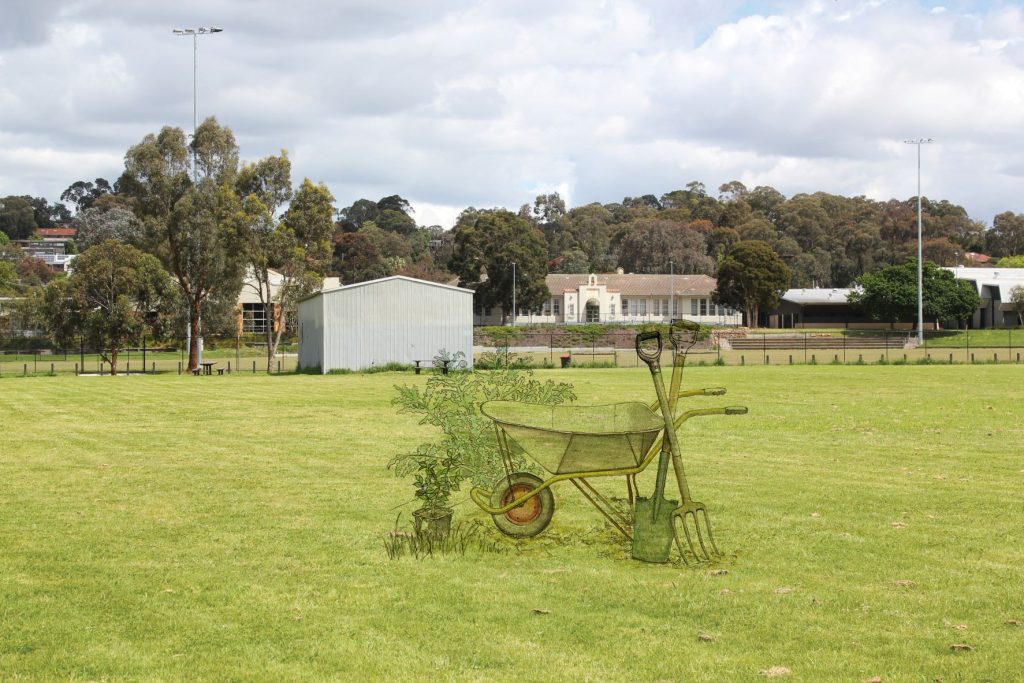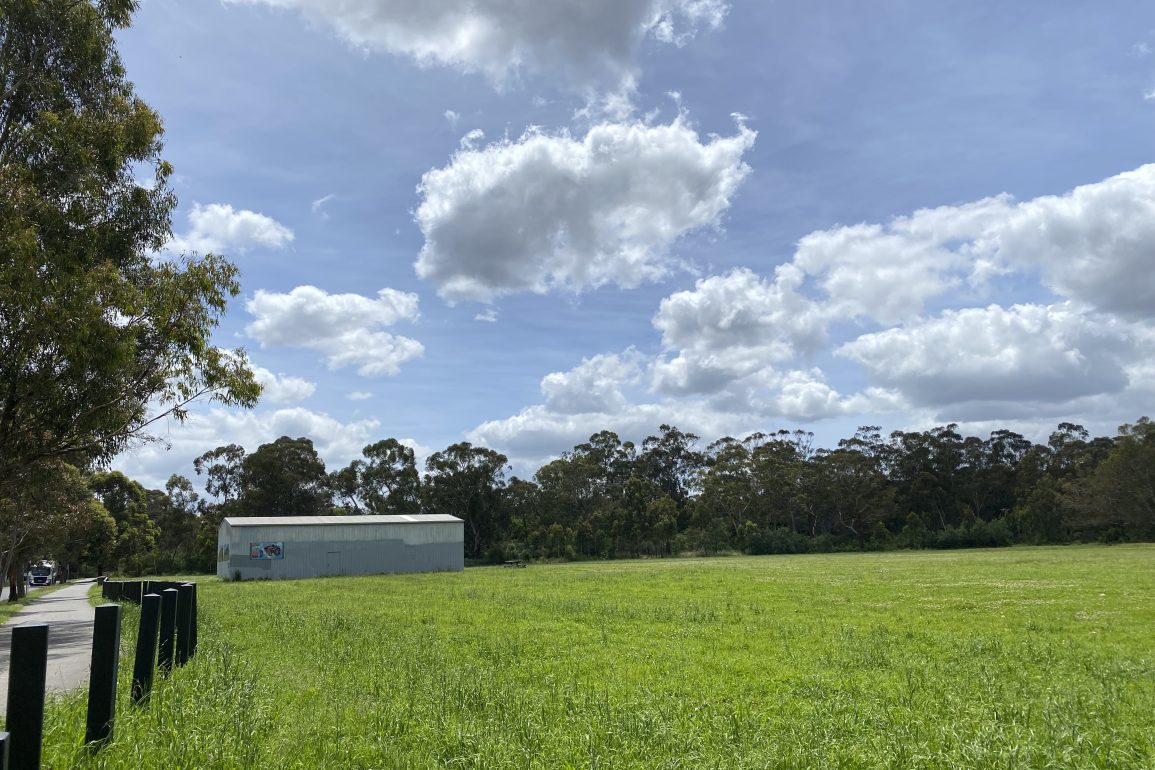Near Eltham High School on the banks of the Diamond Creek lies about five acres of land. Called Fabbro’s Fields, it used to be part of a thriving farm. From 1933 to 2007 Guido Fabbro, and later his son Maurie, grew produce there for the Melbourne markets.
“Many people remember the rows of artichokes which Maurie grew in the Bell Street paddocks,” Eltham local Hans Gregory recalls. “He carefully pruned each artichoke by hand and packed them into wooden or polystyrene crates, loaded them into his small van and drove at 4.30am into the Footscray Fruit and Veggie market to sell his produce. The family had the same stall for decades.”
Now there is a push to resurrect Fabbro’s Farm as an urban farm – a not-for-profit social enterprise selling local food. The community group Local Food Connect (LFC) is promoting the project. The farm, self-sufficient from its sale of fresh, organic vegetables, would allow residents to source ethically-grown local produce, perhaps from the farm gate or by subscribing to a share in the crop.
Chris Chapple, LFC president and founder and manager of Eltham Farmers Market says:
“The vision is to have an urban farm that inspires as many people as possible to eat fresh, healthy food grown nearby and to increase their understanding about the importance of our local food system.”
The site’s proximity to Eltham High School is ideal, Chapple says. “The school has already identified many parts of the curriculum that could be integrated with the farm as a working enterprise.”
“An urban farm would not only be an asset for Eltham but a centre of education in sustainability and local food production,” says Chapple, who has been in conversation with the Nillumbik Shire Council for about five years.

Photo supplied by LFC. Artwork by Felicity Gordon
Increasingly, with the impact of climate change and the possibility of supply chain disruptions, food security is likely to affect more people.
Chapple says: “Farmers markets and urban farms will need to increasingly play a role in local food production, putting control of more of our food supply into our own hands.”
Establishing an urban farm on the site was never going to be easy. Chapple has faced the challenge of convincing authorities that this is the best use of Fabbro’s Fields, which is owned by the state government with management delegated to the Shire of Nillumbik.
Councillor Geoff Paine, Nillumbik’s deputy mayor, understands that people might object to a farm if it was a commercial operation, but he sees the farm as “no different to a sporting group that rents land and makes money to cover its running costs.
“We need to listen to objections but also reassure people that this is not a franchise. It is a community group wanting to produce food locally and to promote the importance of naturally grown, not processed, food.”
Paine says: “It’s not just about food production. It’s a way of connecting us with our local environment. If the community feels it is ‘their’ farm, a lot of the work will be done by volunteers who will learn about farming techniques.”
He points to the examples of CERES in East Brunswick and Joe’s Market Garden in Coburg as urban farms that are popular gathering places and centres of education for local communities.
After five years of campaigning, Chris Chapple is optimistic about the prospect of developing a thriving farm.
“It has been a long and arduous struggle but at this point I am optimistic. The relevant arms of government are excited by the potential and I believe that we might have something growing by the end of the year.”




